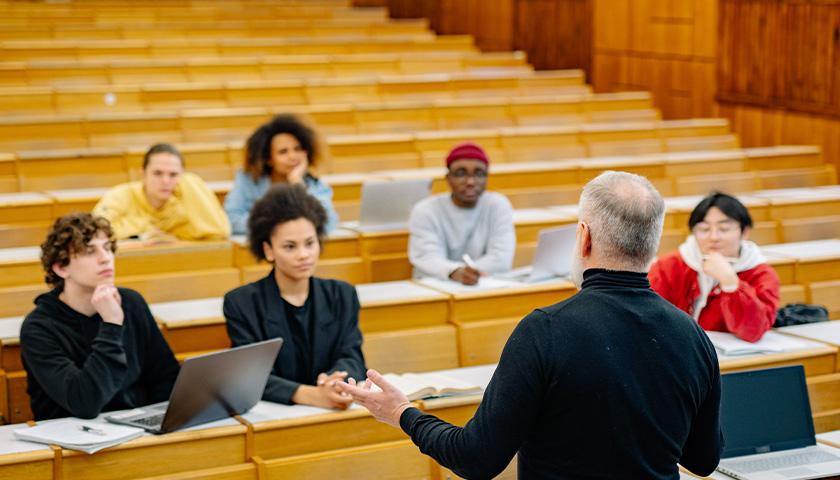by JC Bowman
Every elected official knows the key to building a strong economy starts with education. Every single child in Tennessee deserves access to a high-quality public education. Local control is the best method to address those issues, and the power to make decisions should reside with those closest to the people. That is a principle held by most conservatives and most Tennesseans. Local school systems know what works or what doesn’t work in their schools. Yes, there has to be accountability for those decisions.
We know that the data from student assessment during COVID-19 demonstrates an extreme drop-off from previous years in many districts. Our state has already taken critical steps and strategies to address many of those issues. That data may also be described as not timely, relevant, or helpful. It will provide some critical information about student performance, but likely does not include aspects of student welfare, mental or physical health needs, student/parent engagement, or learning conditions. These results are just a picture of where we were, not a road map to where we are going. Nevertheless, schools should look at the results and make adjustments wherever they are needed.
In a global pandemic, results between comparable districts would be interesting, as would the method of instruction. Did the student attend in person or online? How many days did a student miss? There are lots of factors to consider in any evaluation, we also know that many problems are exacerbated when learning conditions are not stabilized for students.
Think tanks, policy groups, and white papers have a place in education debates. They are just another point of consideration to help create a deeper awareness of topics and issues. However, these outside groups should never replace the decision-making authority of those closest to the student. The further one is from the student, the less the impact any decision should matter.
This past March, a third pandemic stimulus bill called the American Rescue Plan was signed into law, providing public school districts across the country $122 billion in Elementary and Secondary School Emergency Relief (or ESSER III) funds. When we looked at the recent appointees to a statewide appointed ESSER Steering Committee who oversee our share, we were stunned and disappointed by some of the special interest groups who were included on that committee while others were excluded.
One could argue that many of the appointed “steering committee members” are heavily influenced by the Bill and Melinda Gates Foundation and certainly not reflective of many stakeholders with boots on the ground to support students and schools. Why is the inclusion of groups that represent educators, superintendents, and school boards not a higher priority for our state’s executive branch?
There is a growing chasm between the executive branch and education stakeholders. The silence is deafening. If education is important, then educators must be made to feel important. That divide could be resolved quickly if the Governor would engage personally with stakeholders, and sit down in public or private to have a meaningful and welcoming conversation. At times, we are critical of legislation or policies that are being promoted by the state, which is to be expected by advocacy groups reflecting member concerns. We try to be constructive and helpful with our input.
In July 2021, former US Senator Bill Frist challenged Governor Lee and said it was the “responsibility of our state’s leaders to take sometimes uncomfortable, even unpopular, positions when the health and lives of our people are at stake.” The same is true when our association asks elected leaders tough questions on education policy. Information shared through conversation could change our opinion, or validate our viewpoint. No one person or group is right about every issue all the time.
Many educators, school board members, or superintendents statewide—many of whom are conservative—feel their voices are not being heard. It is an easy fix. Simply include more equitable stakeholder input, with greater legislative involvement before decision-making made by agencies and the executive branch. Some media outlets are now reporting that “lawmakers are probing billions of dollars in no-bid state contracts and spending since the COVID-19 pandemic hit Tennessee.” The government at every level is ripe for overspending, malfeasance, and cronyism.
Meaningful conversations on the front-end would benefit Tennessee moving forward, and create a constructive cultural change in the ever-evolving field of public education while cultivating positive support for high-quality public education. It could also resolve the criticism leveled at the administration. Decisions made in exchange for allegiances or special treatment rather than what is best for children, parents, educators, and taxpayers do not benefit the state or our education system.
The Gates Foundation has invested close to $40 million in Tennessee. For unknown reasons, our state is one of its target states. Bill Gates’s ideology simply does not align with the values or priorities of many Tennesseans, but his influence is being felt in groups in which he or his foundation contributes millions of dollars annually to influence state policy. The results of his efforts have likely not helped. Education researcher Rick Hess addressed some of those failed results: RAND evaluation of the failed Gates Foundation to redesign teacher evaluation, compensation, and employment practices, some of which drive our current education policy. This is likely another reason why many are not going into education. We take issue when funding comes from outside lobbying groups. We question the purpose and motives of those, like the Gates Foundation, that come from outside our state or use dollars from outside the state to drive our state policies and reshape our priorities to fit their vision.
The state should never stand in the way of any school or district from developing distinctive policies that address specific community priorities. The underlying principle of local control in education is essential, as is stakeholder buy-in. The quality of public education should never be defined by a zip code, nor should our policies in Tennessee be driven by out-of-state influencers.
Tennessee fundamentally changed public education with Race to the Top. In the process, we embedded some very flawed concepts promoted by outside groups into our schools. To their credit, the Tennessee General Assembly has been addressing many of these problems in the last several years. New challenges put new demands on our schools and districts. No simple, one size fits all approach, driven by out-of-state dollars will significantly address our unique needs in education in Tennessee. Leadership in the Tennessee House and Senate listen and engage in dialogue on key education issues with diverse stakeholders. It’s time Governor Lee and his team follow their lead. Tennesseans need to drive our education policies.
– – –
JC Bowman is the Executive Director of Professional Educators of Tennessee, a non-partisan teacher association headquartered in Nashville, Tennessee. Permission to reprint in whole or in part is hereby granted, provided that the author and the association are properly cited.






1. The key to avoiding radical liberal ideas like CRT and White Privilege being taught in Public Schools is to have a Conservative School Board.
2. Currently, 9 of the 12 Board Members in Williamson County are liberals (4 year terms, 6 elected every 2 years)
3. In 2020, six Board Members were elected – 100% liberals.
4. In 2020, Trump got 62% of the vote in Williamson County and Biden 36%. So, how did 6 Liberals get elected?
5. There are 2 reasons why the Liberals were elected >
# 1 – The winner is simply the person who gets the most votes. The Conservatives votes were split and the Liberals votes were not split. An example is District 5 in Williamson County – the Liberal got 42% of the vote and 2 Conservatives split 58% (36% and 21%).
# 2 – In some cases, Liberals ran and pretended to be Conservatives (they were “Fake Conservatives”) and the Conservatives fell for it. In the 2020 election, the Liberals plan to recruit Fake Conservatives to split the Conservative vote. That is brilliant because even if the Conservatives only run one candidate, the Liberals can still split the Conservatives’ votes and win. (There are 4 Conservative “vetting committees”, none of them coordinating with each other, so almost certainly more than one Conservative will run, and there are wanna be politicians who run for name recognition).
6. Solution > Pass a Law requiring a run-off election if no one gets over 50% of the vote. I have proposed that idea. If that law is passed, Conservatives will win in Williamson and in most TN counties.
If you agree, please contact your TN legislative representative. Or, copy and paste this into an email to them.
When Jimmy Carter created the “Department of Education”, run by the “Federal Government”,
I said then and there, “YOU’LL BE SORRY”.
Prophecy fulfilled.